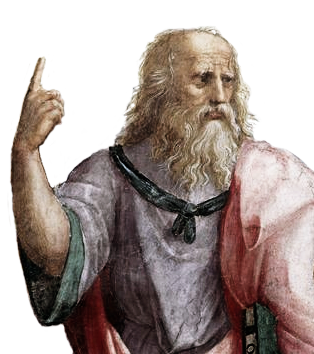
Cratylus (dialogue)
Cratylus (/ˈkrætɪləs/ KRAT-il-əs; Ancient Greek: Κρατύλος, Kratylos) is the name of a dialogue by Plato. Most modern scholars agree that it was written mostly during Plato's so-called middle period.[1] In the dialogue, Socrates is asked by two men, Cratylus and Hermogenes, to tell them whether names are "conventional" or "natural", that is, whether language is a system of arbitrary signs or whether words have an intrinsic relation to the things they signify.
The individual Cratylus was the first intellectual influence on Plato.[2] Aristotle states that Cratylus influenced Plato by introducing to him the teachings of Heraclitus, according to MW. Riley.[3]
Although these are clear examples of onomatopoeia, Socrates's statement that words are not musical imitations of nature suggests that Plato did not believe that language itself generates from sound words.[28]
Influence, legacy[edit]
German psychologist Karl Ludwig Bühler used the Cratylus dialogue as the basis for his organon model of communication, published in 1934.[31]
Gérard Genette, in the work ‘Mimologie. Voyage en Cratilie’ (1976), starts from Plato's speech to argue the idea of arbitrariness of the sign: according to this thesis, already supported by the great linguist Ferdinand de Saussure, the connection between language and objects is not natural, but culturally determined. The ideas developed in the Cratylus, although sometimes dated, have historically been an important point of reference in the development of Linguistics.
On the basis of the Craylus Gaetano Licata has reconstructed in the essay ‘Plato’s theory of language. Perspectives on the concept of truth’ (2007, Il Melangolo), the platonic conception of semantics, according to which names have a natural link (an essential foundation) with their "nominatum".[32]